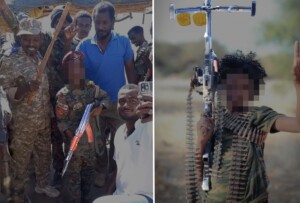Sudanese Journalists Network condemns ‘systematic targeting of reporters’
The Sudanese Journalists Network has strongly condemned the systematic targeting of reporters and newspaper correspondents since the beginning of the current revolt against the rule of President Al Bashir.
 Journalists on strike in Khartoum last week
Journalists on strike in Khartoum last week
The Sudanese Journalists Network has strongly condemned the systematic targeting of reporters and newspaper correspondents since the beginning of the current revolt against the rule of President Omar Al Bashir.
The network said in a statement last week said that the security apparatus is trying to prevent further demonstrations and the spread of news about the protests by satellite channels and international press agencies.
The local newspapers are subject to pre-censorship and confiscations after printing. The network also expressed its deep regret over the arrest of journalist Faisal Saleh, winner of the 2013 Peter Mackler Award for Courageous and Ethical Journalism, journalists Kamal Karrar and Gurashi Awad of the communist El Midan newspaper, Ismail Bilal, news reporter for the Northern State TV Channel, and the banning of columnist Mohamed Abdelmajid from writing for El Intibaha newspaper, after being summoned and interrogated because of articles critical of the regime.
Journalists arrested
As reported by Radio Dabanga last week, Faisal Saleh of the Teiba Press Centre and journalist Gurashi Awad from El Midan newspaper were arrested and Mohamed Abdelmajid of El Jareeda newspaper summoned. They have reportedly published critical writings about the regime since the outbreak of protests on December 19.
El Midan journalist Kamal Karrar has been in detention for several days. The announcer of the Northern State satellite channel, Ismail Bilal, has been in detention since December 22, following media coverage of massive demonstrations in Dongola in northern Sudan. There is no information about the condition of Bilal, sources told Radio Dabanga.
Earlier, journalist Yousef El Jalal from the S24 satellite station was suspended on the grounds of his appearance in the channel as an analyst.
Press curbs
The National Intelligence and Security Service (NISS) has launched a frantic campaign against the press and imposed a strict prior-publication censorship, monitoring the content of daily newspapers and mainly focusing on El Tayyar and El Jareeda. It has, among others, prevented the two dailies from covering the protests by turning the printing presses into barracks for the security service or military, and the entire print-run of El Jareeda was confiscated on Sunday.
On December 27, Sudanese journalists embarked on a three-day strike in response to peaceful demonstrations and protests across the country, protesting the authorities’ continued crackdown on press freedom and expression, and the arrest of a number of journalists.
Reporters Without Borders
International press freedom watchdog Reporters Without Borders (RSF) has issued a statement voicing its alarm at “a new crackdown on the Sudanese media, which has included arrests, attacks on journalists, publication bans and internet cuts. The crackdown has been prompted by a nine-day-old wave of anti-government protests that were triggered by food and fuel price hikes”.
RSF points out that the NISS has done everything possible to prevent journalists from covering the protests, in which 19 people have been killed in clashes with the security forces, according to the authorities – and at least 37, according to Amnesty International.











 and then
and then